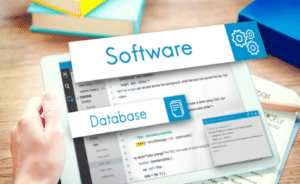blog.hargaticket.com – CRM Meaning in the Digital Age – In the digital age, where businesses and customers are more connected than ever before, Customer Relationship Management (CRM) has transformed into a dynamic and data-driven discipline. No longer is CRM just a static record-keeping system; it’s the nexus where data converges to create personalized and meaningful interactions. In this article, we will explore the evolving meaning of CRM in the digital age, its profound impact on businesses, and how data and personalization have become the pillars of modern CRM.
The Traditional Role of CRM
Defining CRM
Historically, CRM referred to a set of practices, strategies, and technologies that companies used to manage and analyze customer interactions throughout the customer lifecycle. It primarily revolved around storing customer data, managing contacts, and automating sales processes. The focus was on efficiency and streamlining operations.

The Limitations of Traditional CRM
While traditional CRM systems were valuable, they had limitations. They often lacked real-time data, struggled to provide a comprehensive view of customers, and were limited in their ability to personalize interactions. As a result, businesses could miss out on opportunities for deeper customer engagement and meaningful relationships.
The Evolution of CRM in the Digital Age
The Digital Transformation
The digital age ushered in a transformation in how businesses operate and how customers engage with them. The proliferation of digital channels, social media, mobile apps, and e-commerce platforms generated vast amounts of data. This digital footprint provided an unprecedented opportunity for businesses to understand and connect with their customers.
The Expanding Role of Data
In the digital age, data became the lifeblood of CRM. Advanced analytics, machine learning, and artificial intelligence allowed organizations to harness this data for actionable insights. Businesses could now understand customer preferences, behaviors, and sentiments in real-time, paving the way for highly personalized interactions.
The Modern Meaning of CRM
CRM as a Data-Driven Strategy
In the digital age, CRM has transformed into a data-driven strategy. It involves the collection, analysis, and utilization of customer data to provide personalized and contextually relevant experiences. CRM is no longer a mere system; it’s a holistic approach to understanding and engaging with customers.
The Pillars of Modern CRM
1. Data Integration
Modern CRM systems seamlessly integrate data from various sources, including social media, customer interactions, and transaction history. This unified view of customer data enables businesses to create a comprehensive customer profile.
2. Personalization
Personalization is at the core of modern CRM. By analyzing customer data, businesses can tailor their communications, recommendations, and offers to individual preferences. Customers now expect personalized experiences, and CRM makes it possible at scale.
3. Automation
Automation is a critical component of modern CRM. It streamlines repetitive tasks, such as data entry and lead nurturing, freeing up valuable time for sales and marketing teams to focus on building relationships.
4. Analytics and Insights
Modern CRM systems offer advanced analytics and reporting capabilities. These tools provide actionable insights into customer behavior, enabling businesses to make informed decisions and refine their strategies.
The Impact of Modern CRM on Businesses
Enhanced Customer Understanding
Modern CRM has empowered businesses to gain a deep understanding of their customers. Through data analysis, organizations can uncover trends, preferences, and pain points, allowing for more informed decision-making.
Improved Customer Engagement
The personalized and contextually relevant interactions made possible by modern CRM systems have led to improved customer engagement. Businesses can now communicate with customers at the right time, with the right message, through the right channels.
Streamlined Operations
Automation in modern CRM streamlines operations, reduces manual effort, and increases efficiency. This results in cost savings and allows employees to focus on higher-value tasks.
Increased Revenue
The combination of personalized engagement and streamlined sales processes has a direct impact on revenue. Modern CRM helps businesses convert leads into customers more effectively and encourages repeat business through personalized offers and recommendations.
Real-World Applications of Modern CRM
E-commerce and Retail
In the e-commerce and retail sectors, modern CRM systems enable businesses to create personalized shopping experiences. Customer data helps recommend products, offer discounts, and enhance loyalty programs.
Financial Services
For financial institutions, modern CRM plays a pivotal role in managing client relationships. Personalized financial advice, investment recommendations, and account management are all facilitated by CRM systems.
Healthcare
Modern CRM systems in healthcare ensure efficient patient management. They enable timely follow-ups, personalized care plans, and effective communication among healthcare professionals.
Challenges and Considerations
Data Privacy and Security
As CRM systems handle sensitive customer data, ensuring data privacy and security is paramount. Businesses must adhere to data protection regulations and implement robust security measures.
Integration and Adoption
Integrating modern CRM systems with existing technology infrastructure and ensuring user adoption can be complex. Effective change management and training strategies are crucial for success.
Future Trends in Modern CRM
AI-Powered Predictive Analytics
The integration of artificial intelligence and machine learning will continue to advance CRM capabilities. Predictive analytics will enable businesses to anticipate customer behavior and needs more accurately.
Voice and Conversational Interfaces
Voice technology and conversational interfaces will play a more significant role in CRM interactions. Customers will engage with CRM systems through voice-activated devices and chatbots, enhancing convenience and engagement.
Conclusion
In the digital age, CRM has transcended its traditional role as a data management system. It has evolved into a data-driven strategy that empowers businesses to understand, engage, and personalize interactions with their customers at an unprecedented level. Modern CRM is the convergence of data and personalization, where every interaction is an opportunity to build a stronger and more meaningful customer relationship.
The impact of modern CRM on businesses is profound, from enhanced customer understanding to improved engagement and increased revenue. As technology continues to evolve, the future of CRM promises even more advanced capabilities, driven by artificial intelligence and conversational interfaces. Businesses that harness the power of modern CRM are poised to thrive in a customer-centric digital age, where data meets personalization, and meaningful relationships are the key to success.